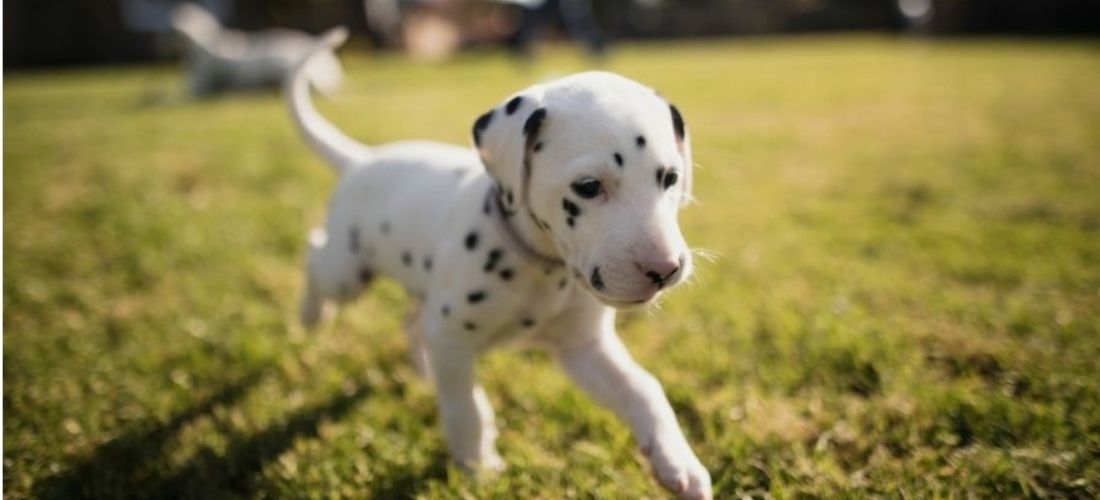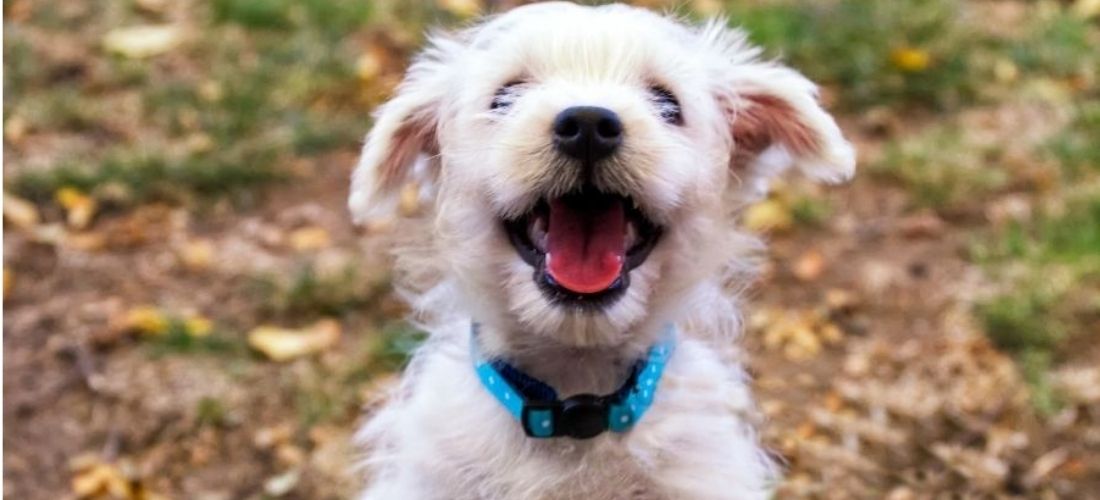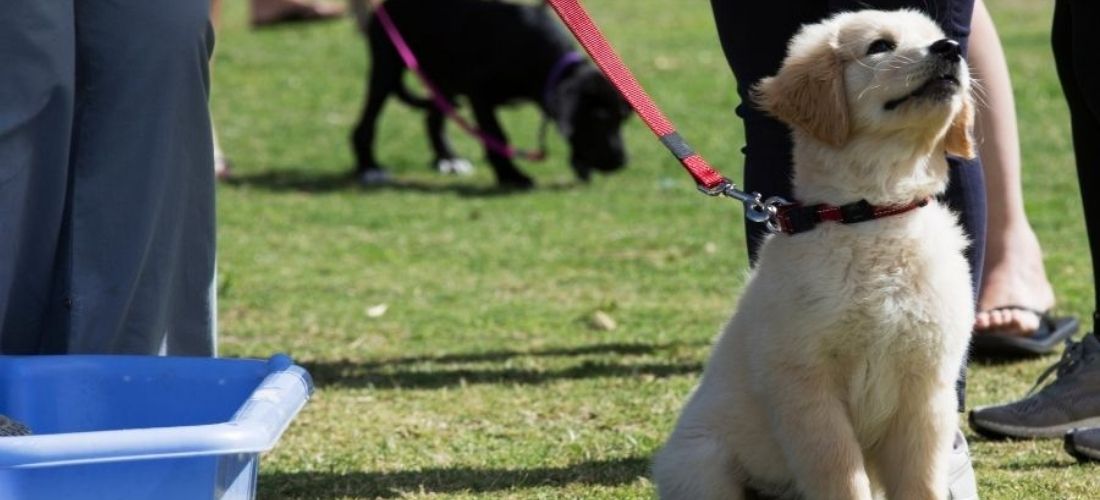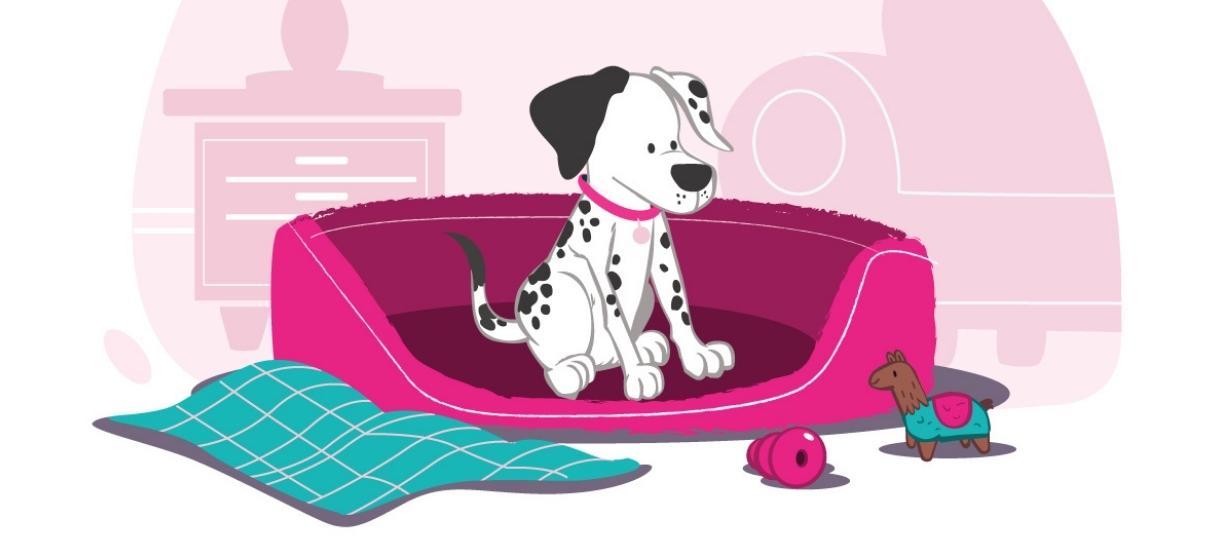New puppy guide
Everything you need to think about for your new arrival
Getting a puppy is a really exciting time, but there's lots to think about beforehand. From deciding whether a puppy is the right pet for you, to bringing them home, here's our guide to help you prepare for your new addition.
What to think about before getting a puppy
Before you decide that a puppy is the best pet for you, or before you get your heart set on a particular breed, there’s lots of things you need to consider. It’s essential to make sure that a puppy is the right pet for you and your family, as taking on a pet is a huge commitment. Remember, your puppy will soon turn into a beautiful adult dog who will hopefully be with your family for many happy years.
You’ll need to make sure you can meet your puppy’s 5 Welfare Needs, providing everything they need to be happy and healthy – and you’ll need to make sure you can continue to do so as their needs change throughout their lives. Here’s some things to carefully consider before you make a decision:
- Cost: Have you budgeted to make sure you can afford all the costs associated with getting a puppy? Setting up for a puppy can be expensive in the first place, but you’ll also need to consider the lifetime costs of owning a dog as well. Make sure that you’re able to budget for insurance, vet bills, food and other ongoing costs, such as buying leads, toys and poo bags.
- Lifestyle: Do you have enough time for a puppy? They will need plenty of company, entertainment and ongoing training during the day, especially while they are young. If you work full-time, you may need to consider day care options. Remember that a new puppy is a lifetime commitment and you’ll need to look after them for as long as they live – if you’re planning any big lifestyle changes, make sure they’ll be able to accommodate a dog.
- Your home: Is your home dog appropriate? Do you have a secure garden or access to a safe outdoor space for them to run and play in, and enough room for them to have separate eating and sleeping areas? What will you need to adapt to make it dog-proof?
- Your household: Does everyone in the household want a dog? Who will be responsible for walks, feeding and play time? Do you have any other pets in the household? You’ll need to do any introductions slowly, and think about whether everyone in your home will be happy to welcome a new, bouncy pup.
- Vets: Do you know of any vets nearby to register your new puppy? You can find local vets online and on the RCVS website, as well as asking any responsible dog owners you know for recommendations. It’s worth visiting the vet before getting a puppy, as they can give you advice and help you with research.
- Research: Before getting any pet, you should always research them thoroughly. When thinking about a dog, remember to research their breed to make sure they fit in with your home and lifestyle – you can take our quiz to get you started.
When looking into getting a puppy, you'll also need to carefully consider where you get your new four-legged friend from – remember that this can have a big impact on their health and wellbeing.
If you're buying a puppy from a breeder, beware of puppy farms and get to know the signs so you can recognise one when doing your research. We'd recommend using the puppy contract to help you find your perfect pup from a good and responsible breeder. For pedigree puppies, you can also look at finding a Kennel Club Assured breeder, as they need to meet higher standards.

Preparing for your new puppy
Once you have decided that a puppy is the right pet for you, there’s lots of things you’ll need to prepare before their arrival.
The first thing you’ll need to do is puppy-proof your home and make sure it’s the perfect dog-friendly space, making sure that anything harmful such as cleaning products, cables and anything else they shouldn’t chew, is well out of paws’ reach! Don’t forget that your new furry friend will grow quickly, so stairs or furniture that might be out of reach on the first day might soon become accessible to your pup.
You’ll also need to make sure your new arrival has their own space set up, by creating a place for their resting area. A crate can be great, as it gives them a secure base to explore from and can help with their toilet training. Make sure it’s in a quiet place where they won’t be disturbed or in the way, with lots of blankets and bedding to keep them warm and comfy. If you’re planning for your dog to share your room or bed, it’s still important to give them a safe area where they can rest at other times, especially if you’re not planning on giving them access to the bedroom at all times.
Once you’ve sorted out their resting space, you’ll need to decide where your puppy is going to eat. This should be in a different place to their sleeping area, and remember to store their food somewhere they can’t reach!
If there’s any areas of your house you don’t want your puppy accessing, or if you want to limit when they can access them, you might want to look at installing baby gates. They’re a great way to teach your dog where they can and can’t go. It’ll also help keep them safe and enable your puppy to see you if you go into a room they’re not allowed in – which can be very reassuring for them while you’re helping them get used to time alone!
If you are going to restrict access to certain areas, make sure you set clear boundaries for your puppy from day one as it’s very confusing if they’re allowed to go somewhere sometimes but get told off at other times.
Making sure your garden is secure is also really important so that your puppy can play safely outside. Make sure there’s nowhere they could squeeze through or dig under a fence, and check for poisonous plants and other garden hazards.
Create a checklist
As well as puppy-proofing your home, you’ll need to make sure you’re prepared with all of the supplies your puppy will need. Here are some things that your list could include:
- A crate and/or bed
- Food and water bowls
- A complete puppy food (read our guide to choosing the right food below)
- Collar and tag (a legal requirement)
- Lead (and harness)
- Car restraint
- Lots of toys
- Puppy pads for toilet training
- Poo bags
- A brush or comb for grooming
- Toothpaste (one for dogs!) and toothbrush
- Dog shampoo
- Blankets
Bringing your new puppy home

Bringing your new puppy home is an exciting time, but it can also be overwhelming for both you and your pup – however, there’s lots of things you can do to help your puppy settle into their new home and the world around them:
- Take your time: New places can be overwhelming for puppies, so you’ll need to make sure everything is nice and calm at home on the day they arrive. You might want to limit them to one or two rooms in the house at first so they can get used to everything slowly in their own time.
- Create a routine: It’s important to get your puppy into a routine as soon as possible to help them settle. Try to keep meal, play, and bed times at the same time every day (as well as walk times once they’re able to go outside).
- Calming products: Plug-in diffusers that release calming pheromones can be good for the first few weeks. They can help your puppy feel more relaxed around the home – especially during those first nights! You can also buy calming collars or supplements that might help your puppy if you’re travelling, visiting the vets or when they start venturing out into the world.
- Be consistent: Make sure all of your puppy’s training and routine are consistent and that your family all stick to the same rules. If you don’t, your puppy might get confused and frustrated, as well as finding it more difficult to learn.
- Set boundaries: Make sure your boundaries are clear from the beginning and stick to them. If you don’t want your puppy to go on the sofa, you need to make sure you and your family keep to this from day one. The same applies to parts of the house where your dog isn’t allowed – make sure it’s clear from the start so they don’t get into habits you don’t want.
- Start socialisation: Your puppy’s socialisation period is a key time for them to learn what to expect from life. During this time, it’s really important to start socialising them to the sights, sounds and smells they’re likely to come across later in life. You can begin by socialising your puppy at home and by carrying them out and about with you. They’ll need to be fully covered by their vaccination before they start going for walks or meeting unvaccinated dogs – check with your vet to find out what’s best for your pup.
- Give them space: Although it can be tempting to spend every minute with your new pup, they’ll need to have time to themselves too. If they need to sleep and rest, give them the space to do so and encourage them to play on their own sometimes to help prevent separation problems later in life.
- Consider training classes: It can be a good idea to go along to training classes with your puppy, so you can let them have positive experiences with vaccinated dogs and people in a safe environment. They’ll start also learning their basic commands which will be really important later in life! Make sure you choose classes run by trainers who are certified or accredited and use reward based methods. If you’re not sure which class to choose, you can ask your vet for recommendations.
For more tips, read our guide on the first day with your puppy.
Once you’ve started to help your puppy settle in, you’ll also need to take them to the vet for a check-up and to book any remaining vaccinations and other treatments they are due. Remember to pop a reminder in your diary for any future vaccinations and worming/flea treatments and don’t forget to keep their microchip details up-to-date throughout their lives.
It's also a good idea to get your new puppy insured as soon as possible. This will help make sure they have all the cover they need in future if they fall ill or become injured. You can get a quote for PDSA Pet Insurance here.
Feeding your puppy
With so much choice available, it can be tricky to know what to feed your new puppy. Diet is really important when keeping their weight healthy, so we’d always recommend a complete, commercial puppy food, which is labelled for puppies rather than adults. Puppies need a particular level of nutrients compared to adults to help them grow, so finding an appropriate puppy food is essential.
Your puppy’s breeder should be able to advise you on what food your pup was already eating and how much. It’s a good idea to continue with the same food initially. Speak to your vet for advice on the best puppy food for your dog to make sure you pick one that will suit their needs as they grow. If you need to change your puppy’s food at any point, make sure you do it slowly to avoid tummy upsets. Don’t forget to weigh your puppy regularly to check how quickly they're growing and that you’re feeding them the correct amount.
Exercising your puppy
Your puppy will have very different exercise needs to an adult dog, and it’s important to take their exercise easy at first. As a general rule, it’s good to aim for five minutes of exercise per month of your puppy’s age, twice a day – just remember that every puppy is different, so you may need to cut this down if your puppy is struggling. You can still keep your puppy happy and entertained in lots of other ways, for example playing games or trying a puzzle feeder.
Before you start exercising your puppy in the big wide world, you must make sure that their vaccinations are fully up to date, in order to keep them safe and healthy.
Training your puppy

Your new puppy will likely need to learn all of their skills from scratch, which means lots of basic training! Start the basics at home, such as teaching your dog recall and sit. This will prepare your puppy for when you start heading out for their first walks, and you can continue their training when you’re out and about with more distractions.
Regardless of your puppy’s age, you should always use positive, reward-based training when teaching your dog new things. It can help the two of you bond, and your pup will see training as a fun thing to do.
One thing that most people think about when bringing their puppy home, is toilet training! Toilet training is an important part of training your puppy, so it’s a good idea get started straight away. Always use positive, reward-based training and never punish your puppy for toileting in the wrong place. Toilet training might take time – some pups can learn toilet training in a few months, while others might take a lot longer. It’s important to stick with it and be consistent.
Exercising your puppy
It's important to know the right amount – and right types – of exercise for your puppy.
Find out moreSocialising your new puppy
Read our vets' advice on socialising your new puppy with other dogs, people and everyday sounds and smells.
Read moreShop our Puppy essentials
From teething toys to flea and worm treatments, our range of puppy products have been vet-approved so you'll have confidence that your pup is getting the very best
Shop
